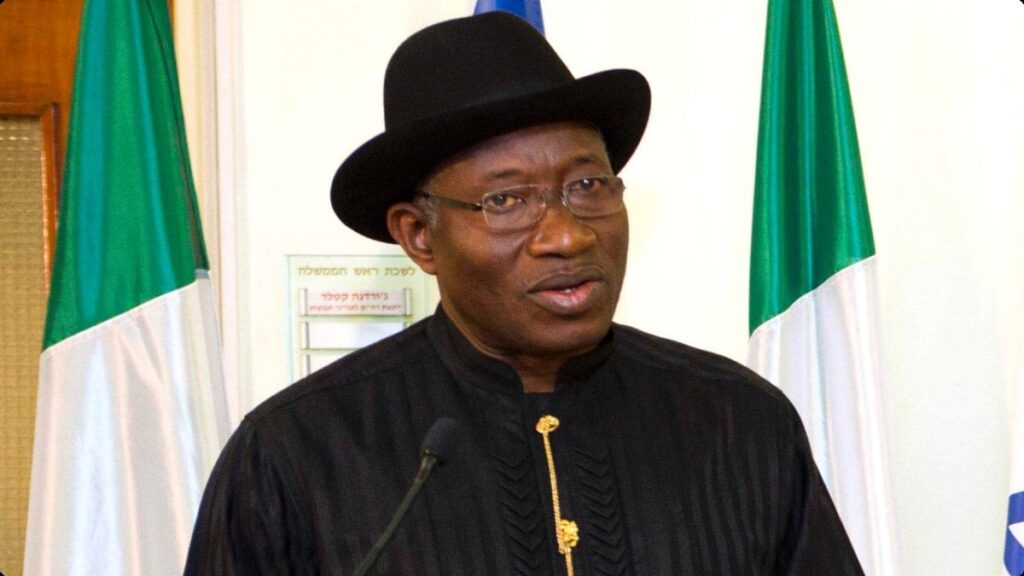Nigeria’s former president Goodluck Jonathan has been tipped to return to frontline politics, with senior figures in the Peoples Democratic Party (PDP) insisting he will contest the 2027 presidential election and reclaim Aso Rock.
The declaration came from Professor Jerry Gana, a former Minister of Information and one of the PDP’s founding fathers, who told reporters in Minna at the weekend that Jonathan had become the party’s clear choice to challenge the ruling All Progressives Congress (APC). Speaking after the PDP Niger State Congress, Gana said that many Nigerians had grown disillusioned with the two administrations that followed Jonathan’s exit in 2015 and were now eager for his return.
Read Also:
Bashir Ahmad alleges pressure on Goodluck Jonathan to contest 2027 presidency
Obidient movement urges Jonathan to support Peter Obi ahead of 2027 election
Bello El-Rufai apologises for past criticism of Goodluck Jonathan
“In 2015, former President Goodluck Jonathan said his ambition was not worth the blood of Nigerians,” Gana noted. “After him, another president ruled for eight years, and now another has ruled for two years. Nigerians have seen the difference, and the difference is very clear. They are now asking us to bring back our friend, former President Goodluck Jonathan. I can confirm that Goodluck Ebele Jonathan will contest the presidential election in 2027 as PDP candidate, and we should be prepared to vote for him to return as president again.”
Jonathan’s record in office remains hotly debated. Supporters often point to his commitment to democracy, citing his decision to concede defeat peacefully in 2015 and his oft-quoted remark that his ambition was “not worth the blood of any Nigerian.” During his tenure, the economy experienced one of its strongest periods of growth, buoyed by high oil prices. Advocates also credit him with reforms in agriculture, education, and telecommunications, as well as his administration’s effort to establish institutions such as the Sovereign Wealth Fund.
However, the APC has consistently attacked Jonathan’s legacy. Critics argue that corruption thrived under his watch and that his government struggled to contain the Boko Haram insurgency, which expanded dramatically during his years in office. In a recent statement, the APC accused the PDP of having “laid the foundation for the insecurity” still plaguing the country, alleging that Jonathan and his allies had left behind weak institutions and a fragile economy.
The contrasting narratives highlight the challenge Jonathan faces should he indeed declare for the race. While nostalgia for his comparatively stable years in power has grown among some Nigerians weary of hardship, his candidacy would reopen old debates about accountability and security failures.
Within the PDP itself, Gana moved to quash speculation of division, insisting the party remained united and “truly democratic and grassroots-oriented.” He pointed to the successful Niger State congress, where Alhaji Aliyu Mohammed Halidu was elected chairman by a narrow margin, as evidence of internal cohesion. In his acceptance speech, Halidu called for unity and urged members to work together to “ensure the return of a people-oriented government in 2027.”
As the PDP rallies around Jonathan, the APC is expected to sharpen its attacks, framing his potential return as a step backward. For voters, the coming years may reignite questions over whether Jonathan represents unfinished business or an era best left in the past. What is clear is that his name remains one of the most powerful in Nigeria’s political lexicon, ensuring that his possible comeback will dominate the conversation as 2027 draws nearer.



